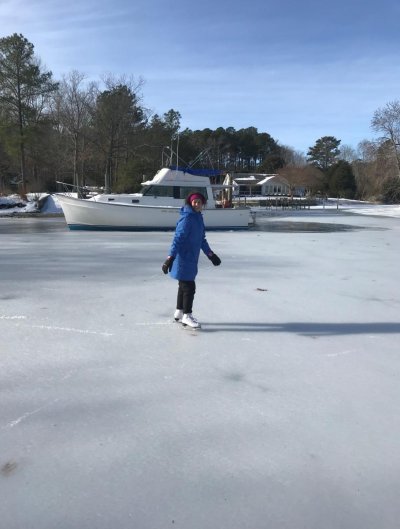I am in the (very) early stages of planning a Down East Circle cruise: we'll take 14-16 weeks July-September to travel from NYC upstate, to Kingston, ON then on to Montreal, Quebec and out the St Lawrence Seaway, around Nova Scotia, down the Maine coast, LI Sound and back to, approx., NYC.
We're coming from Australia and at the end of this expedition, we will need to leave the boat somewhere for 2-4 months before returning for another 8-16 week expedition.
I'd like to avoid 'winterizing" the boat. How far south of NYC would we need to leave the boat to avoid 'winterizing'?
We're coming from Australia and at the end of this expedition, we will need to leave the boat somewhere for 2-4 months before returning for another 8-16 week expedition.
I'd like to avoid 'winterizing" the boat. How far south of NYC would we need to leave the boat to avoid 'winterizing'?



 Prior to the last couple of years, we had one 9F degree low temperature in about a decade.
Prior to the last couple of years, we had one 9F degree low temperature in about a decade.